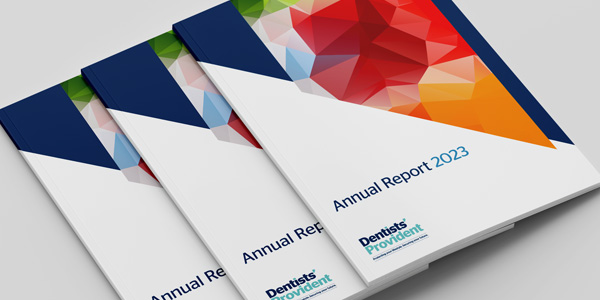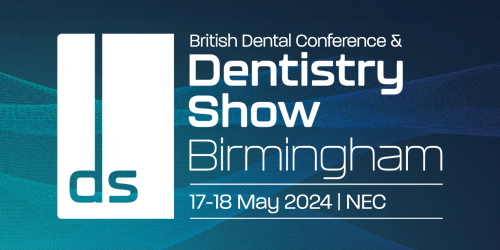
As we all know, stress can be part of everyday life, especially with a team to manage, a business to run, and fitting in a life and family. It can drive us, motivate us and even give us energy to fit it all in, but it can also cause us harm. Would you take some time out of your day if it could actually help prevent the negative impacts of stress?
Your profession
Dentistry is widely considered to be a stressful profession. You work in the confinement of a small surgery, meeting the health needs of anxious patients with high expectations, all alongside the responsibilities of management and the increasing mountains of paperwork.
Stress is a well-documented problem, findings from a recent TUC survey published on World Mental Health Day in October, found stress to be the top health and safety concern in UK workplaces. Last year, research by the British Dental Association (BDA) into the work pressures of dentists working in primary salaried care, suggested they were twice as likely as other workers to experience high levels of job-related stress.
In 2013, psychiatric disorders represented around 15% of the claims paid to our members, including a total of £270,000 for depression and more than £45,000 for work-related stress.
Prevention is better than cure
Managing stress is a term we have all heard and this is important to help to keep your stress levels ‘in check’, but wouldn’t it be better if we could actually do something every day to help to prevent it? After all, like oral care itself, prevention is better than cure.
In Dental Protection’s 2014 Annual Review, the observations were made that ‘As dental professionals we extol the benefits of preventive dentistry, but we sometimes overlook the preventive steps we can take to try to avoid injuring ourselves.’ and ‘As dental professionals caring for others, it is easy to forget about the impact that the care we provide may have on our own health.’
In a 2011 study Joanna Taylor, a dental practice manager, accredited clinical hypnotherapist, trainee psychotherapist and stress management consultant conducted a survey investigating some of the major causes of stress and stress management in the dental team. She found that, out of the 178 principal and associate dentists who took part, more than one third (36%) stated they were stressed about their work most working days.
Stress management
The Stress Management Society is recognised as a leading authority on stress management issues and suggests that yoga can reduce stress, lower heart rate, lower blood pressure, reduce tension in muscles and reduce anxiety. Massage can also be effective in treating stress, as it releases tension in muscles and can energise you.
The Alexander Technique (AT)
Most research on the Alexander Technique has been in areas such as back pain, rather than stress. However, people have also used the technique for stress-related reasons, generally making them calmer and more in control of life.
Julia Woodman BSc, PhD, from the Research Group of the Society of Teachers of the Alexander Technique (STAT), explains the principles behind the technique, and says: ‘At a basic level we all know that the mind and body operate together, influencing each other. For example, if we're stressed our neck and shoulders tighten and this, in turn, contributes to feeling more stressed. If you tend to react in an automatic, habitual way to what life throws at you, then you are likely to end up feeling more stressed. With the Alexander Technique you develop the ability to consciously prevent unwanted habitual reactions, either physical or emotional.”
Meditation
Meditation can be an effective stress relieving and preventive technique and has been around for thousands of years. Loren W Christensen a Vietnam war veteran, martial artist and retired street ‘cop’, demonstrates in his book ‘meditation for warriors’ that meditation can be for everyone from every walk of life, he says “You can meditate and still own a pit bull, drive a Harley and share lies with your drinking buddies.”
Meditation is becoming more recognised in the western world as a simple and effective method of relaxation that has the flexibility to fit into your working day. It gives you a break from everyday life and is a straightforward process that requires no specials skills or experience - so anyone can have a go. It can quieten your mind and allow your body to sink into a state of rest, helping get rid of deep-rooted stress and tension.
Stress has an impact on our physiology and our nervous systems and what none of us want is for that stress to stay and become imbedded in our systems.
There are various meditation techniques from simply focusing on an object or sound, to more well-known techniques like Transcendental Meditation, which seeks to eliminate stress, fatigue and tension in the mind and body. This is promoted by celebrities and features periodically in the media; it follows a set routine and a large number of research studies support its effectiveness.
Transcendental Meditation (TM)
This is a relatively simple, easy to learn, natural technique of the mind and, once you have learnt it, you get the most out of it by doing it twice a day for 20 minutes by simply sitting comfortably with your eyes closed. Evidence has shown that it can help reduce stress and anxiety, reduce insomnia, improve your physical health, raise your energy levels and enhance your creativity, by recharging you mentally and physically.
Kevin Esplin, a Dentists’ Provident member and specialist prosthodontist at Devonshire House Dental Practice in Cambridge, says ‘I took up TM in 1985 as a way of managing stress at work. It helps by managing the general wear and tear on my mind and body. I get better sleep and always feel refreshed afterwards. I often recommend this for patients who complain of life's stresses as well. As can happen in everyday practice, things can go wrong and the unexpected happens but I can now take it in my stride more easily.’
A Summary of Scientific Research on Transcendental Meditation by Dr Roger Chalmers6, reported that research and/or clinical experience have identified benefits of Transcendental Meditation in the management of a range of common clinical problems, including hypertension, sleep disturbance, occupational stress, anxiety and depression.
The Vedic Technique
The Vedic Technique is a more recent and independent incarnation of TM that already has a substantial following. Maguy Ouvrard a Vedic teacher says “There are over 500 research papers that provide evidence of how Transcendental Meditation and therefore the Vedic Technique, can help our mind to relax and get rid of the stresses of the day, in a simple, calm and easy way. It can leave you feeling fresh and creative in the morning ready to tackle your day, on top of things during your working day and refreshed and rejuvenated after work.”
Philip McCauley, a Dentists’ Provident member and implantologist in the South West of England, is a keen advocate of the Vedic Technique. He says: “I don’t think any of us realised just how stressful being a dentist would be when we were training. The reality is, we spend days, upon weeks upon months and years in a confined, intense environment, dealing with emotionally draining patients, plus often issues with staff. Coupled with the monotony the job can bring, the added pressure of running a business and ticking all the government boxes required, it really is no surprise that many dentists suffer from stress related problems in their physical/mental health. I found this technique of the mind and haven’t looked back since. It gives me a priceless tool to be able to cope with the challenges of the job and, most importantly, still feel refreshed at the end of my working days and week.”
With the New Year close by, now may be the time for looking into how these techniques could help manage, or even prevent, the stresses in your life for a more relaxing year ahead.
References available on request.
This article is intended for information only. It is not designed to give financial or medical advice, nor is it intended to make any recommendations of the suitability of our plans for a particular individual. Full details of our contract can be found in our rules on our website www.dentistsprovident.co.uk. Dentists’ Provident Society Limited does not accept liability and responsibility for changes made to this information. Some of the information in this article has been obtained from third parties. While we believe the information to be reliable; we make no representations as to its accuracy and accept no responsibility or liability for any error, omission or inaccuracy in the data supplied by any third party.
If you have any questions, please contact our member services consultants by emailing press@dentistsprovident.co.uk or calling 020 7400 5710.
If you have any questions, please contact our member services consultants by emailing
memberservices@dentistsprovident.co.uk or calling 020 7400 5710.

Our 2024 Annual General Meeting will be held at 91-94 Saffron Hill, London, EC1N 8QP on Friday 24th Ma…
Read more
The 2023 annual report from Dentists’ Provident, a leading income protection provider for dental profe…
Read more
Our next exhibition is the British Dental Conference & Dentistry Show in May, where we look forward to meeting anyone interested in becoming a member or members wanting to discuss their plans.